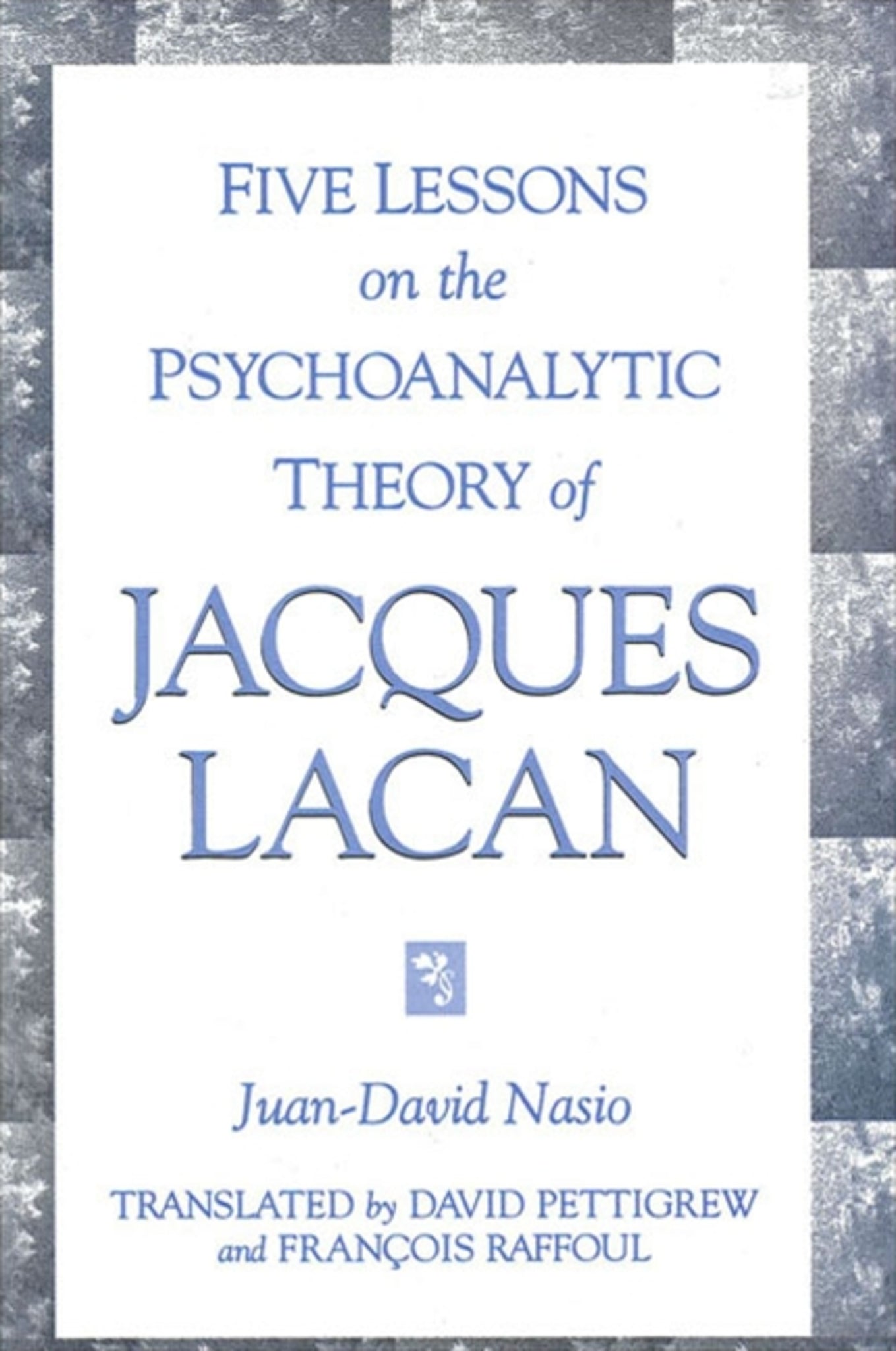We're sorry. An error has occurred
Please cancel or retry.
Five Lessons on the Psychoanalytic Theory of Jacques Lacan

Some error occured while loading the Quick View. Please close the Quick View and try reloading the page.
Couldn't load pickup availability
- Format:
-
10 July 1998

In this first English translation of a classic text by one of the foremost commentators on Lacan's work, Nasio eloquently demonstrates the clinical and practical import of Lacan's theory, even in its most difficult or obscure moments.
Five Lessons on the Psychoanalytic Theory of Jacques Lacan is the first English translation of a classic text by one of the foremost commentators on Lacan's work. Juan-David Nasio makes numerous theoretical advances and eloquently demonstrates the clinical and practical import of Lacan's theory, even in its most difficult or obscure moments. What is distinctive, in the end, about Nasio's treatment of Lacan's theory is the extent to which Lacan's fundamental concepts-the unconscious, jouissance, and the body-become the locus of the overturning or exceeding of the discrete boundaries of the individual. The recognition of the implications of Lacan's psychoanalytic theory, then, brings the analyst to adopt what Nasio calls a "special listening."


"Nasio's Five Lessons provides an incisive entry into the densities of Lacan's difficult discourse. Focusing on the two principles of the unconscious as 'structured like a language' and of jouissance as signifying that 'there is no sexual relation,' Nasio takes up Lacanian theory in a refreshingly nondogmatic way. The complex role of the signifier, the vexing status of the subject of the unconscious, and the enigmatic object a are illuminated in the context of fantasy and the body. This is a remarkable work, as pithy as it is profound. The translation by Pettigrew and Raffoul makes Nasio's text—and thus Lacan's Écrits—lucidly accessible." — Edward S. Casey, State University of New York at Stony Brook
Translators' Introduction
Five Lessons on the Psychoanalytic Theory of Jacques Lacan
Prefatory Remarks
First Lesson: The Unconscious and Jouissance
First Principle: "The unconscious is structured like a language"
Second Principle: "There is no sexual relation"
Second Lesson: The Existence of the Unconscious
When can the unconscious be said to exist?
The unconscious manifests itself in "lalangue"
The unconscious is a structure that actualizes itself
The unconscious is the displacement of the signifier between the patient and the analyst
The subject of the unconscious
Third Lesson: The Concept of Object a
The therapeutic goal of psychoanalysis
Object a
The problem of the other
The formal status of object a
The "corporal" status of object a
The breast as object a
Summary on object a: the need-demand-desire triad
Fourth Lesson: Fantasy
That which is proper to psychoanalysis
Clinical observations on fantasy
The body as a core of jouissance
Fifth Lesson: The Body
Sexual, symbolic, and imaginary body
Partial body and jouissance
A clinical vignette
Formations of object a
Appendix: The Concept of the Subject of the Unconscious
Translated by Boris Belay
The relation of the subject to unconscious knowledge
The relation of the subject to logic
The relation of the subject to castration
The layered subject of the unconscious
The concept of unconscious knowledge
Notes
Index



